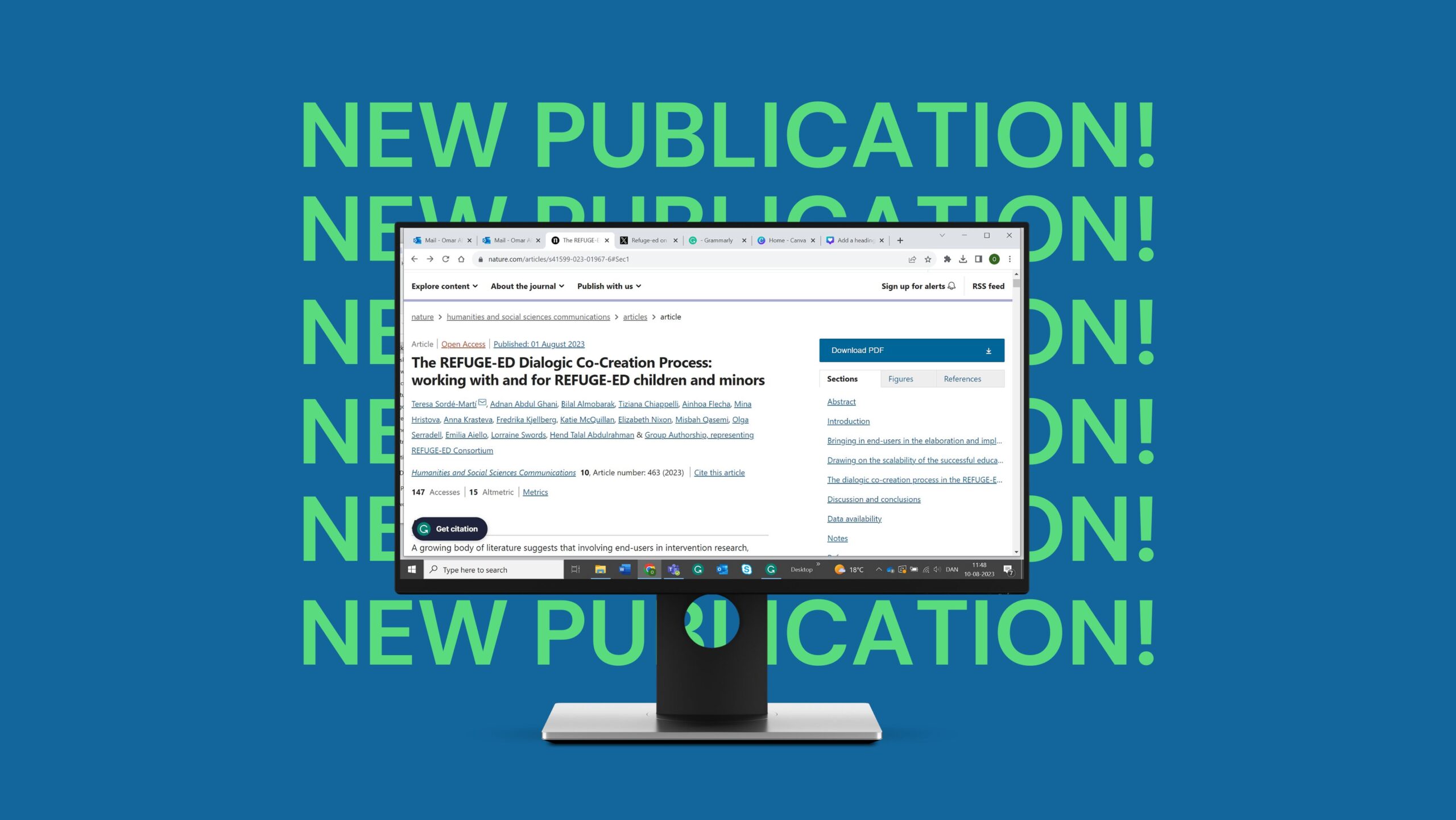
We are excited to announce that we have a new journal published. The journal discussed and present an innovative co-creation approach to enhances education and mental health support for migrant and refugee communities.
Cutting-edge collaboration between researchers and marginalized communities drives impactful change. In a groundbreaking effort to bridge the gap between research and practical implementation, our REFUGE-ED Project has successfully employed a novel co-creation methodology to address the educational, mental health, and psychosocial needs of migrant, refugee, and asylum-seeking youth across Europe. The project’s innovative approach, known as the “REFUGE-ED Dialogic Co-Creation Process (RDCP),” has demonstrated significant potential for enhancing intervention efficacy, sustainability, and replicability within diverse contexts.
Recognizing the need to involve end-users in the research process, REFUGE-ED sought to co-create and evaluate evidence-based practices that support the educational success, wellbeing, and sense of belonging of asylum seekers, and refugees (hereinafter, MAR).
The RDCP framework, implemented across 46 educational settings in six European countries, focuses on three key aspects: creating a safe space, providing psychoeducation, and facilitating creative expression. These components have proven instrumental in fostering positive outcomes for marginalized youth, enabling them to thrive academically and emotionally.
Our research emphasizes the importance of collaborative efforts in designing interventions that truly address the unique needs of migrant and refugee communities. The RDCP framework empowers these communities to actively participate in shaping solutions that resonate with their experiences and aspirations.
